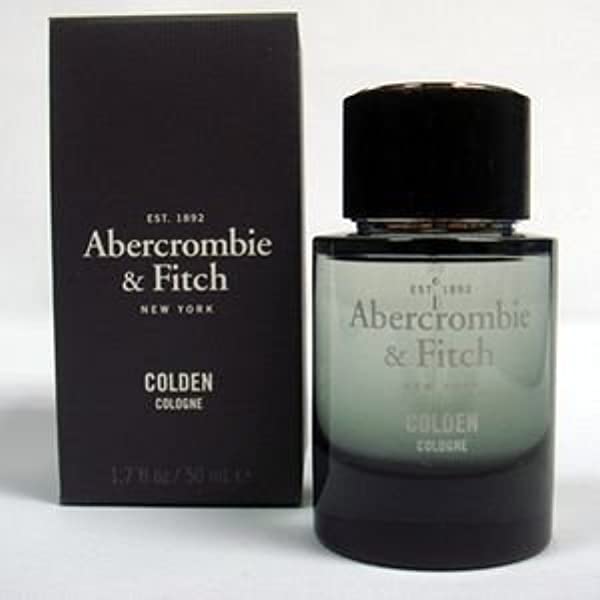Abercrombie & Fitch is a name synonymous with style, quality, and a rich history in the fashion industry. For decades, it has been a beacon of modern fashion, captivating millions of consumers worldwide with its unique brand identity. Whether you're a fashion enthusiast or simply curious about the brand's origins and impact, this comprehensive guide dives deep into the world of Abercrombie & Fitch.
Founded in 1892, Abercrombie & Fitch has evolved from a small sporting goods store into a global fashion powerhouse. Its journey is not just about clothing but also about creating a lifestyle that resonates with its audience. In this article, we'll explore the brand's history, its rise to fame, key milestones, controversies, and its current standing in the fashion world.
As we delve into the Abercrombie & Fitch wiki, you'll uncover fascinating insights into the brand's strategies, product lines, and cultural significance. Let's embark on this journey together and discover what makes Abercrombie & Fitch such an influential player in the fashion industry.
Read also:Unveiling The Enigma The Inspiring Journey Of Mike Adriano
Table of Contents
- Brand History: From Sporting Goods to Fashion Icon
- Biography and Key Milestones
- Understanding Abercrombie & Fitch's Brand Identity
- Exploring Abercrombie & Fitch's Diverse Product Lines
- Marketing Strategies That Made Them Famous
- Controversies Surrounding the Brand
- The Brand's Current Status in the Fashion Industry
- Abercrombie & Fitch's Commitment to Sustainability
- What's Next for Abercrombie & Fitch?
- Conclusion: Why Abercrombie & Fitch Matters
Brand History: From Sporting Goods to Fashion Icon
Abercrombie & Fitch's journey began in 1892 when it was established as a high-end sporting goods store in New York City. Originally, the brand catered to outdoor enthusiasts, offering premium-quality gear for hunting, fishing, and exploration. Over the years, it gained a reputation for its rugged, adventurous image, attracting clientele such as Theodore Roosevelt and Ernest Hemingway.
Evolution into Fashion
In the late 20th century, Abercrombie & Fitch underwent a dramatic transformation. Under new ownership, the brand shifted its focus from sporting goods to casual fashion. This decision marked the beginning of its rise as a fashion icon, targeting a younger demographic with its trendy, high-quality clothing.
By the 1990s, Abercrombie & Fitch had established itself as a leader in the youth fashion market, known for its distinctive logo and aspirational marketing campaigns. The brand's success was driven by its ability to create a lifestyle that resonated with its target audience.
Biography and Key Milestones
Abercrombie & Fitch's history is filled with pivotal moments that shaped its identity and success. Below is a detailed look at some of the most significant milestones in the brand's journey:
| Year | Event |
|---|---|
| 1892 | Founded in New York City as a sporting goods store |
| 1988 | Acquired by The Limited, marking the transition to fashion |
| 1996 | Launched the flagship store on Fifth Avenue in New York |
| 2000 | Expanded globally with stores in Europe and Asia |
| 2010 | Introduced sustainable practices in manufacturing |
Understanding Abercrombie & Fitch's Brand Identity
Abercrombie & Fitch's brand identity is built on a foundation of quality, style, and exclusivity. The brand's logo, featuring a moose head, has become an instantly recognizable symbol of its commitment to premium fashion.
Core Values
The brand's core values revolve around creating a lifestyle that appeals to its target audience. Key elements of its brand identity include:
Read also:Noodle Agazine Your Ultimate Guide To The World Of Noodles
- High-quality materials and craftsmanship
- Modern, trendy designs that cater to young adults
- A focus on exclusivity and aspirational marketing
Exploring Abercrombie & Fitch's Diverse Product Lines
Abercrombie & Fitch offers a wide range of products designed to meet the needs of its diverse customer base. From casual wear to formal attire, the brand covers all aspects of modern fashion.
Key Product Categories
- Clothing: T-shirts, jeans, jackets, and more
- Accessories: Sunglasses, bags, and footwear
- Fragrance: Signature scents for men and women
Each product line is meticulously crafted to reflect the brand's commitment to quality and style, ensuring that customers receive the best possible experience.
Marketing Strategies That Made Them Famous
Abercrombie & Fitch's marketing strategies have been instrumental in its success. The brand has consistently pushed the boundaries of traditional advertising, creating campaigns that capture the imagination of its audience.
Aspirational Marketing
One of the brand's most successful strategies is aspirational marketing, which focuses on creating a lifestyle that consumers want to emulate. This approach has been particularly effective in targeting young adults, who are drawn to the brand's image of sophistication and exclusivity.
Additionally, Abercrombie & Fitch has leveraged social media platforms to engage with its audience, using influencers and user-generated content to enhance its brand presence.
Controversies Surrounding the Brand
Despite its success, Abercrombie & Fitch has faced several controversies over the years. One of the most notable issues was its exclusive hiring practices, which led to accusations of discrimination. The brand faced legal action and was forced to revise its policies to ensure greater inclusivity.
Steps Toward Inclusivity
In response to these challenges, Abercrombie & Fitch has taken significant steps to promote diversity and inclusivity. This includes hiring a more diverse workforce and expanding its product lines to cater to a broader audience.
The Brand's Current Status in the Fashion Industry
Today, Abercrombie & Fitch remains a prominent player in the global fashion market. The brand continues to innovate, introducing new product lines and expanding its reach through e-commerce platforms.
According to a report by Statista, Abercrombie & Fitch's revenue in 2022 exceeded $4 billion, highlighting its enduring popularity and financial success. The brand's ability to adapt to changing consumer preferences has been a key factor in its continued growth.
Abercrombie & Fitch's Commitment to Sustainability
In recent years, Abercrombie & Fitch has placed a strong emphasis on sustainability, recognizing the importance of environmental responsibility in the fashion industry.
Sustainable Practices
The brand has implemented several initiatives to reduce its environmental impact, including:
- Using sustainable materials in its products
- Reducing waste through innovative manufacturing processes
- Supporting global sustainability efforts through partnerships
These efforts demonstrate Abercrombie & Fitch's commitment to creating a more sustainable future for the fashion industry.
What's Next for Abercrombie & Fitch?
Looking ahead, Abercrombie & Fitch is poised to continue its upward trajectory in the fashion world. The brand plans to expand its digital presence, invest in emerging markets, and further enhance its sustainability initiatives.
With a focus on innovation and customer satisfaction, Abercrombie & Fitch is well-positioned to remain a leader in the global fashion industry for years to come.
Conclusion: Why Abercrombie & Fitch Matters
In conclusion, Abercrombie & Fitch's journey from a small sporting goods store to a global fashion icon is a testament to its ability to adapt and innovate. The brand's commitment to quality, style, and sustainability has earned it a loyal following and a respected place in the fashion world.
We encourage you to share your thoughts and experiences with Abercrombie & Fitch in the comments below. Additionally, feel free to explore other articles on our site for more insights into the world of fashion and lifestyle.
References:
- Statista - Abercrombie & Fitch Revenue Report
- Forbes - Sustainability in Fashion
- Business Insider - Brand Evolution


